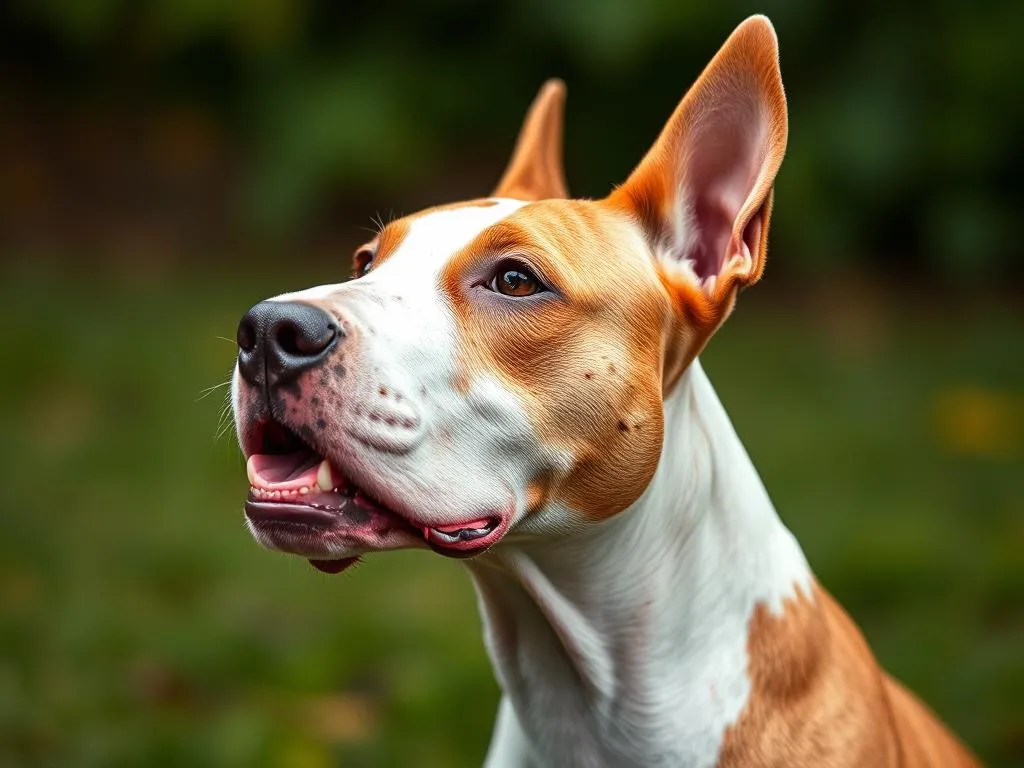
Introduction
When it comes to choosing a dog, many potential owners must consider their allergies. The term hypoallergenic often comes up, leading to questions about which dog breeds are suitable for allergy sufferers. Hypoallergenic breeds are typically thought to produce fewer allergens, making them more tolerable for individuals with sensitivities. Among the countless breeds, Bull Terriers stand out due to their unique appearance and spirited nature. However, there are common misconceptions surrounding their hypoallergenic status. This article aims to explore whether Bull Terriers are hypoallergenic and provide comprehensive information about the breed, helping prospective owners make informed decisions.
Understanding Hypoallergenic Dogs
Definition of Hypoallergenic
In the context of dogs, hypoallergenic refers to breeds that are less likely to trigger allergic reactions in sensitive individuals. This is primarily due to lower production of allergens, which include pet dander, saliva, and urine. Dog allergies are often a result of proteins found in these substances, and while no dog is entirely free of allergens, certain breeds are considered more suitable for allergy sufferers.
Common Myths About Hypoallergenic Breeds
Several myths surround hypoallergenic dogs, such as:
- Myth 1: All hypoallergenic dogs don’t shed.
-
Reality: While many hypoallergenic breeds shed less, they can still produce dander, which is a significant allergen.
-
Myth 2: Breeds labeled hypoallergenic are completely safe for allergy sufferers.
-
Reality: Individuals may still react to hypoallergenic breeds, as everyone’s sensitivities vary.
-
Myth 3: Only certain breeds can be hypoallergenic.
- Reality: Some mixed breeds and less common breeds can also be less allergenic.
Understanding these myths is crucial for dog owners as they navigate their options.
Importance of Choosing the Right Breed
Allergies can significantly impact the dog ownership experience. For allergy sufferers, choosing a hypoallergenic breed can lead to a more enjoyable companionship, reducing the likelihood of allergic reactions and ensuring a harmonious household. Selecting the right breed is essential for both the owner’s health and the dog’s well-being.
Overview of Bull Terriers
History and Origin
The Bull Terrier breed originated in the early 19th century in England. Initially bred as a fighting dog, they were a mix of the Bulldog and the now-extinct White English Terrier. Over time, Bull Terriers transitioned from their aggressive origins to become beloved family pets, known for their loyalty and playful nature.
Physical Characteristics
Bull Terriers are distinctive in appearance, characterized by their muscular build, egg-shaped head, and strong jaw. They typically weigh between 50 to 70 pounds and stand about 21 to 22 inches tall at the shoulder. Their coat is short, dense, and requires minimal grooming, which can be an advantage for those concerned about allergens. Common colors include white, brindle, and various combinations of black, fawn, and tan.
Temperament and Behavior
Known for their friendly and energetic disposition, Bull Terriers are playful and often affectionate with their families. They are known to be good with children and can be social companions. However, their high energy levels and strong personality might affect allergy sufferers, as they can lead to increased shedding and dander if not managed properly.
Bull Terriers and Hypoallergenic Status
Are Bull Terriers Hypoallergenic?
The question remains: are Bull Terriers hypoallergenic? The short answer is no. Bull Terriers are not classified as hypoallergenic dogs. While they may produce fewer allergens than some breeds, they still produce significant amounts of dander and saliva, which can trigger allergic reactions in sensitive individuals. Experts agree that while some allergy sufferers may tolerate Bull Terriers better than others, they are not suitable for everyone with dog allergies.
Allergens Associated with Bull Terriers
The primary allergens associated with Bull Terriers include:
- Dander: Tiny skin flakes that can cause allergic reactions.
- Saliva: Proteins in dog saliva can trigger allergies when it dries and becomes airborne.
- Urine: Although less common, urine can also be a source of allergens.
Compared to other breeds, Bull Terriers do produce a moderate amount of these allergens, making them less ideal for individuals with severe allergies.
Comparison with Other Breeds
To better understand the allergenic potential of Bull Terriers, it’s helpful to compare them with other breeds. Below is a simple table showcasing the allergen levels of various breeds, including Bull Terriers.
| Breed | Allergen Level |
|---|---|
| Bull Terrier | Moderate |
| Poodle | Low |
| Bichon Frise | Low |
| Shih Tzu | Moderate |
| Labrador Retriever | High |
As seen in the table, Bull Terriers fall into the moderate allergen level category, which may not be suitable for all allergy sufferers, especially when compared with breeds like Poodles or Bichon Frises.
Managing Allergies with Bull Terriers
Tips for Allergy Sufferers
For those who are set on getting a Bull Terrier despite allergies, there are several practical tips to minimize allergens in the home:
- Regular Grooming: Bathe your Bull Terrier frequently using a hypoallergenic dog shampoo to reduce dander and loose hair.
- Designated Areas: Create pet-free zones, particularly in bedrooms, to limit exposure.
- Air Filtration: Use HEPA air purifiers to capture airborne allergens.
Regular Cleaning and Maintenance
Maintaining a clean environment is crucial for managing allergies. Consider the following cleaning routine:
- Vacuum Frequently: Use a vacuum with a HEPA filter to reduce dander and hair accumulation.
- Wash Bedding: Regularly wash pet bedding and any fabrics your Bull Terrier frequently contacts.
- Hard Surfaces: Opt for hard flooring instead of carpets, as they are easier to clean and less likely to trap allergens.
Regular Veterinary Care
Regular veterinary check-ups play a critical role in managing a Bull Terrier’s health, which can impact allergy symptoms. Ensuring that your dog is up-to-date on vaccinations and free from skin conditions will help minimize excess dander and other allergens. Additionally, addressing any health issues promptly can alleviate allergy symptoms for sensitive individuals.
Conclusion
Summary of Key Points
In summary, while Bull Terriers are not hypoallergenic, some allergy sufferers may tolerate them better than other breeds. Understanding the factors that contribute to dog allergies, such as dander and saliva, can help prospective owners make informed decisions. Regular grooming, cleaning, and veterinary care can also mitigate allergic reactions.
Final Thoughts
For potential Bull Terrier owners who suffer from allergies, it is essential to consult with allergy specialists and breed experts before making a decision. Every individual’s sensitivity is different, and what works for one person may not work for another. Ultimately, a well-informed choice leads to a healthier and happier relationship between dogs and their owners.









